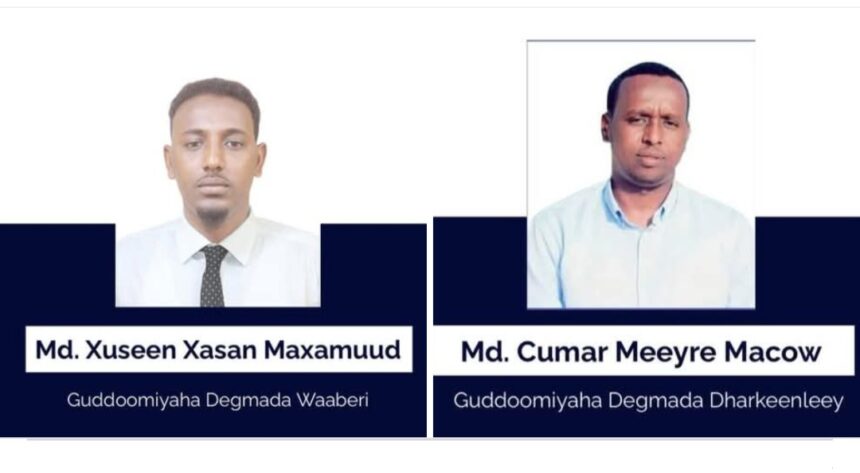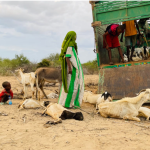Mogadishu, Somalia – The Governor of the Banaadir region and Mayor of Mogadishu Dr. Hasan Mohamed Huseen (Muungaab), has announced a series of key appointments for district commissioners within the nation’s bustling capital. These leadership changes are poised to shape the future trajectory of Mogadishu’s urban development, service provision, and community stability at a pivotal moment for Somalia.
The high-level reshuffle sees two critical districts receiving new leadership. Mr. Omar Meeyre Mo’ow has been officially appointed as the new commissioner of Dharkeenleey District, taking the reins from his predecessor, Mr. Mohamoud haji Ali Fidow. Concurrently, Mr. Huseien Hasan Mohamoud steps into the role of Commissioner for Waaberi District, succeeding Mr. Mohamed Sayid Ali. Both Dharkeenleey and Waaberi are central to Mogadishu’s urban fabric, encompassing diverse populations and facing distinct challenges in areas such as infrastructure and service delivery.
Mayor Muungaab, in his directive to the newly installed commissioners, laid out a comprehensive vision for their tenures. He emphatically called upon them to prioritize the development and aesthetic enhancement of their respective districts, coupled with a commitment to ensuring the efficient provision of essential basic services to all residents. This mandate reflects a broader strategic initiative by the Banaadir Regional Administration to not only beautify the capital but also to fundamentally improve the living conditions and opportunities for its rapidly growing populace.
Mogadishu, as the federal capital and a major economic hub, has experienced significant population growth and urbanization in recent years. This expansion, while a sign of progress, presents complex governance challenges including the management of informal settlements, the need for robust public services, and the strengthening of institutional frameworks. The recent recognition of additional districts by the President further amplifies the need for effective local administration capable of integrating new areas into the city’s development plans.
The success of these appointments will hinge on the new commissioners’ ability to navigate the intricacies of urban management in a post-conflict environment. Their roles are crucial in bridging the gap between central policy and local execution, fostering community engagement, and driving tangible improvements in areas such as waste management, urban planning, and security. While district commissioners are appointed by the regional governor, their effectiveness will ultimately be judged by their responsiveness to citizen needs and their capacity to cultivate stability and progress at the grassroots level.
These strategic changes in leadership at the district level are a vital component of Mogadishu’s ongoing journey towards resilience and prosperity. The Banaadir administration’s proactive approach in placing experienced and committed individuals in these roles highlights a determination to meet the evolving demands of one of Africa’s fastest-growing cities and to fulfill the aspirations of its residents for a well-governed, vibrant, and thriving capital.





